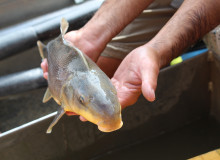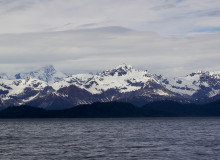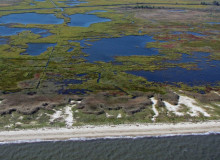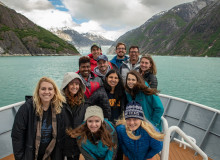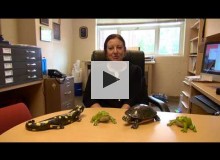Water
Arizona State University
Fish in the Colorado River are a product of harsh conditions. But human interference in the rivers they call home has pushed a few to the edge of extinction. Luke Runyon of KUNC reports.
Planet Forward Senior Correspondent | Cornell University
Next in our Alaska series: Climate change isn’t just seen – it’s felt. Weather and temperature fluctuations aside, many experience health impacts caused or exacerbated by climate change.
Planet Forward Correspondent | George Washington University
The next piece in our Stories of Alaska series looks at the human impact, from warming climates to microplastics, in one of the least-inhabited places in the United States — and what we're doing about it.
University of Delaware
The health of the Delaware Bay is in question. Human activities, even those at the far reaches of a watershed, can deeply effect a bay's ecosystem. So how can we prevent more damage and work on restoration?
Northwestern University
Medill's Nefertari Bilal reports: The rise of tourism in Guna Yala promises profit, but locals face challenges posed by both globalization that tourism brings and the threat of the industry's collapse, posed by climate change.
Founding Director, Planet Forward
We just concluded our 2018 Planet Forward storytelling expedition to Alaska with Lindblad Expeditions aboard the National Geographic Sea Lion. Our Storyfest winners were dazzled by the ecosystems and the wildlife.
University of Delaware
A vernal pool is a pond — but, more specifically, a seasonal one since it typically dries out at some point during the course of the year.
Northwestern University
Medill's Jessica Mordacq reports from Panama: The San Blas Islands and Kalu Yala are two very different environments in Panama that both revolve heavily around tourism.
Northwestern University
The event marked four years after a state-appointed official made the ill-fated decision to switch Flint’s water source to the Flint River, which resulted in disastrous lead contamination.
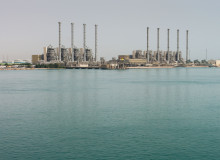
Azzizia Desalination Plant in Saudi Arabia. (Waleed Alzuhair/Flickr)
Northeastern University
Q&A with Sarah Fletcher, a Fellow for Water Solutions, about large desalination plant infrastructure projects and alternatives such as water rationing.

